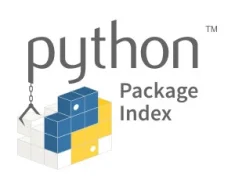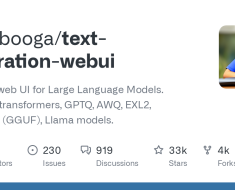
LangChain agents are fascinating creatures! They live in the world of text and code, interacting with humans through conversations and completing tasks based on instructions. Think of them as your digital assistants, but powered by artificial intelligence and fueled by language models.
Getting Started with Agents in LangChain
Imagine a chatty robot friend that gets smarter with every conversation. That’s your LangChain agent – an AI companion powered by language models. Talk, ask, even brainstorm with it, and watch it learn your quirks and preferences. Need help writing or translating? It’s got your back. LangChain offers a toolbox to build your own unique AI buddy, ready to chat, learn, and take on tasks – your friendly digital sidekick awaits!
Also Read: LangChan Python Tutorial
What is an agent in LangChain?
In LangChain, an agent is a customized program powered by a language model that can hold conversations, complete tasks, and adapt to your needs. Think of it as a versatile AI companion you build for:
- Chatting: Have natural conversations, understand context, and personalize responses.
- Doing: Answer questions, translate languages, generate text, and even automate simple tasks.
- Learning: Grow with every interaction, remember past conversations, and adapt to your preferences.
You can choose different language models, equip your agent with specialized tools, and even fine-tune it to specific domains. In short, a LangChain agent is your own, unique AI friend, ready to chat, learn, and help you out!
Check This: Create LangChain ChatBot
What is the benefit of LangChain agents?
The benefits of LangChain agents are many and varied, depending on your needs and goals. Here are some key advantages:
Personalization: Build an AI assistant that’s tailored to you, with a personality and skill set that matches your preferences.
Versatility: Go beyond simple chatbots. Tackle tasks like translation, text generation, code completion, and even automation with specialized tools.
Continuous Learning: Your agent gets smarter with every interaction, improving its understanding of your context and evolving to better meet your needs.
Enhanced Productivity: Leverage your agent to handle repetitive tasks, freeing up your time and energy for more important things.
Creative Collaboration: Brainstorm ideas, co-write content, or explore different creative formats with your agent as a brainstorming partner.
Accessibility: LangChain provides tools and resources to build agents even if you’re not a programming expert.
Open-ended Potential: The possibilities are truly limitless! From personalized education to entertainment bots, the applications of LangChain agents are only restricted by your imagination.
Ultimately, the biggest benefit of LangChain agents is the ability to have a powerful and adaptable AI companion that caters to your specific needs and helps you achieve your goals. It’s like having a digital Swiss Army knife for your day-to-day life, powered by the magic of language.
We hope this gives you a good overview of the benefits offered by LangChain agents!
What are the different use cases for the LangChain agent?
The beauty of LangChain agents is their versatility, meaning there are use cases across various fields and needs. Here are a few examples to spark your imagination:
Personal
- Conversational AI Assistant: A personalized assistant that answers your questions, schedules appointments, remembers your preferences, and even cracks jokes, becoming your digital sidekick.
- Creative Partner: Generate ideas, draft outlines, co-write stories or poems, or translate languages for global communication – your agent as a creative muse.
- Personalized Learning Companion: Tailor-made educational experiences catered to your learning style and pace, with a patient AI tutor by your side.
Professional
- Customer Service Chatbot: A multi-lingual agent that handles customer inquiries, resolves issues, and provides personalized support, freeing up human agents for complex tasks.
- Content Creation Tool: Generate social media posts, product descriptions, or even marketing copy with the help of your agent, optimizing your content creation workflow.
- Meeting Summarizer and Action Item Extractor: Automatically summarize your meetings, extract key points and action items, and save you valuable time and effort.
Technical
- Code Completion and Doc Assistant: An AI helper that suggests code snippets, generates technical documentation, and answers programming questions, boosting your developer productivity.
- Automated Data Analysis and Reporting: Leverage your agent to analyze your data, generate reports, and identify trends, making sense of complex information with ease.
- Software Testing and Bug Detection: Train your agent to find bugs in your code, run test cases, and report potential issues, ensuring higher software quality.
These are just a few examples, and the possibilities are truly endless. Think of any task that involves language, learning, or automation, and there’s likely a use case for a LangChain agent to improve it. So, what challenge will you tackle with your own AI companion? Think and Innovate.
A Sample LangChain Agent
Let’s write a sample agent that will summarize the meeting notes and preserve the action items.
import langchain
from langchain.llms import OpenAI
from langchain.agents import ZeroShotAgent
from langchain.memory import TextMemory
from langchain.prompts import PromptTemplate
# Function to create a consistent LLM connector
def cfg_llm():
return OpenAI(temperature=0)
# Create a memory module
memory = TextMemory()
# Define a prompt template with clear instructions
prompt_templ = PromptTemplate(
template="""Act as an official meeting minutes writer. Summarize the following meeting transcript, highlighting key points and action items. Be concise and informative.
{transcript}
CONCISE SUMMARY IN ENGLISH, INCLUDING ACTION ITEMS:""", # Explicitly request action items
input_variables=["transcript"]
)
# Create the agent
agent = ZeroShotAgent(
llm_chain = LLMChain(llm = cfg_llm()),
prompt = prompt_templ,
memory = memory,
tools = [] # Customize with additional tools
)
# Let's get our agent into action.
transcript_str = "Julia shared the AI Bot project status. Jane raised concerns about budget. Action item: Julia to provide cost estimates by Friday."
# Update memory (ensure transcript is a string)
memory.update(transcript=str(transcript_str))
# Generate the summary and action items
result = agent(prompt=prompt_template(transcript=transcript_str))
print(result)
Here are a few key points for successful execution:
- Install LangChain and dependencies: Run
pip install langchain. - Obtain API keys: If using external language models, acquire the necessary API keys.
- Handle errors gracefully: Implement try-except blocks to catch potential exceptions during API calls or other operations.
- Test and evaluate: Thoroughly test the agent with diverse meeting transcripts to assess its accuracy and identify areas for improvement.
- Fine-tune for specialization: Explore fine-tuning the LLM on a dataset of meeting summaries and action items to enhance its performance in this specific domain.
Please feel free to modify or extend the above code. We hope it will be a good starting point for you.





